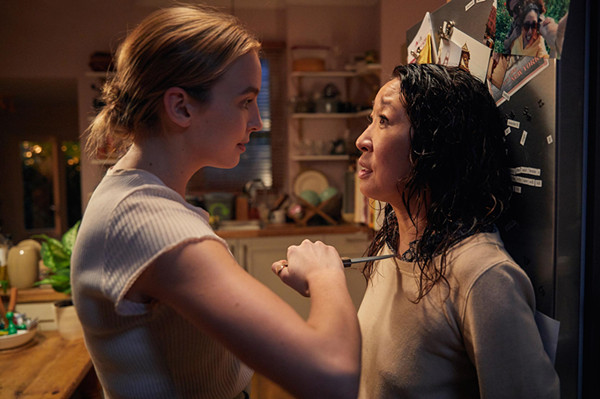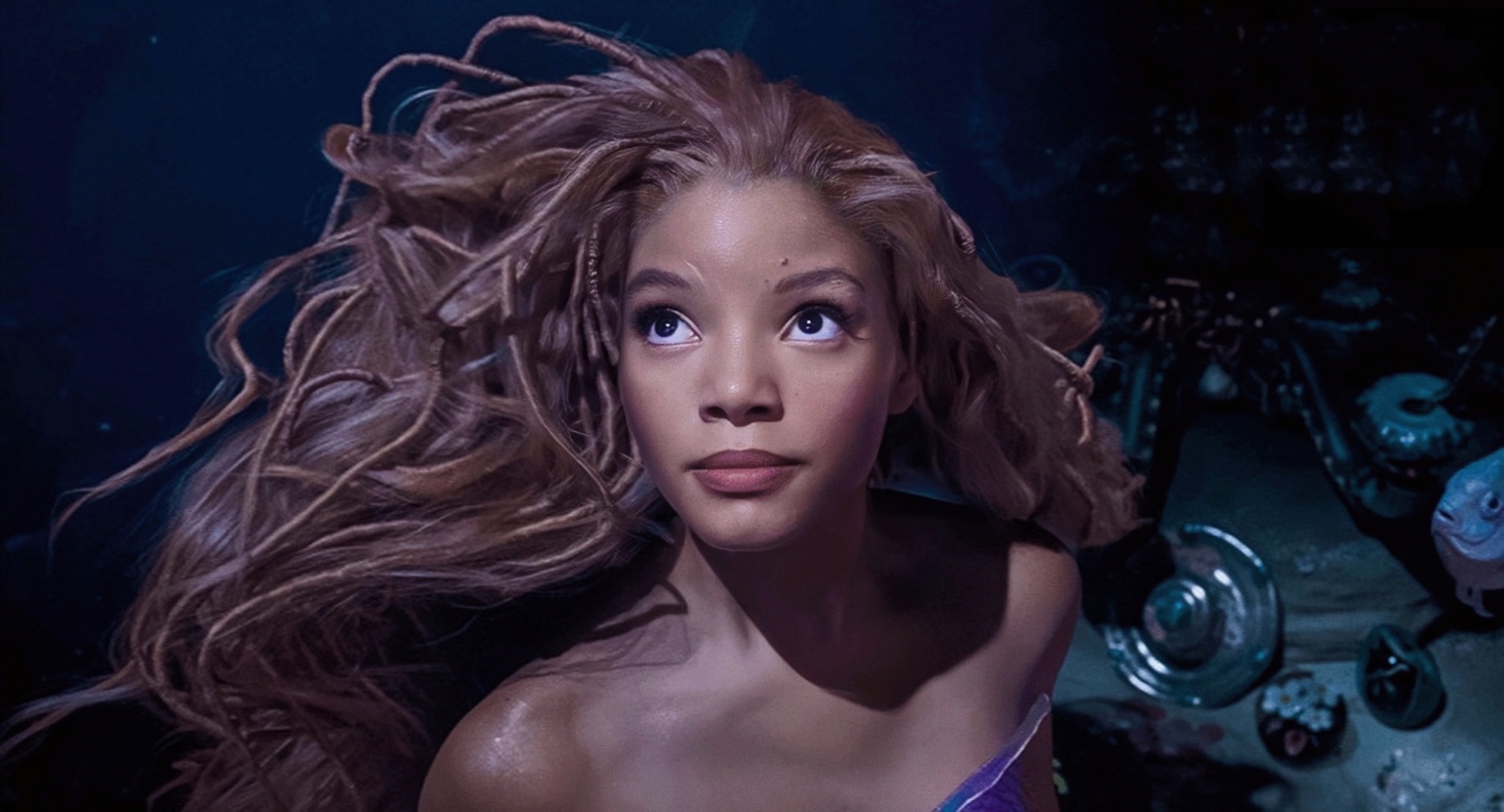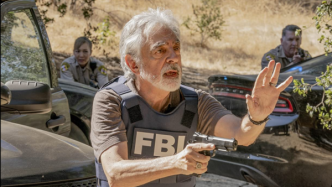
As if to distill the theme, the sixteenth (resurrection) season of Criminal Minds took the heart of the show and made Rosie (Joe Mantegna) say it again in desperation. The teenage victim wanted to commit suicide with a gun. Rossi, who has been widowed for a year, said: "You still have a choice. You have to choose to fight. You have to keep the desire to survive."
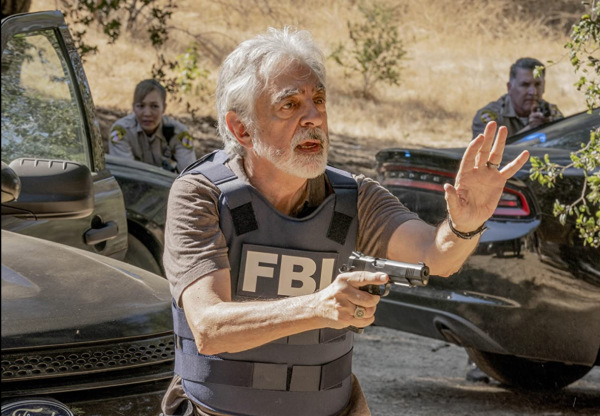
"Criminal Minds" season 16 stills, Rosie (Joe Mantegna) says: You still have a choice
When the girl's parents were killed, he was the one who comforted the bereaved grandmother: "I can't guarantee that the murderer will be caught and your granddaughter will be found, and I can't tell you with a pat on the chest that everything will be better in the future." ,but……"
"'I'm sorry', you must have said it countless times in your life." The old lady accepted Rossi's comfort, and a white-haired man understood what the other white-haired man meant.

"Criminal Minds" Season 16 (Resurrection Season) Poster
In 2020, CBS's long-lived crime drama "Criminal Minds" announced its farewell to the audience. Since its premiere in 2005, the show has aired a total of 323 episodes. After a long period of company, the criminal profiling method of the Behavioral Analysis Unit (BAU, Behavioral Analysis Unit) of the US FBI has finally become familiar to audiences around the world. In informal settings, even criminal psychologists are willing to cite the cases for analysis. The audience benefits even more. The play educates us for a long time with the density of almost one tragedy per episode, showing the vast area beyond order, morality, conscience and law. It allows us to see the dark side of so many human beings and helps us prepare for the unfortunate surprise.
Over the course of fifteen seasons, members of the lead cast have come and gone. They were given ample time to reflect on their own sorrows and shortcomings. They grow, but are never invulnerable. In the latest season, misfortune didn't let a man go because of his age and experience. Rosie's personality changes due to the loss of his wife and becomes extremely difficult to get along with. That's why he said those words subconsciously, telling the girl whose parents died was also telling himself that there is no guarantee of future safety, and the past losses cannot be made up, but people can still choose to live hard. Among all the agents, Rossi is the oldest and has seen the most complex, sinister and incomprehensible life. The relief he gives is also self-redemption, at the expense of the character's pain, and continues to teach the audience how to deal with grief as before.
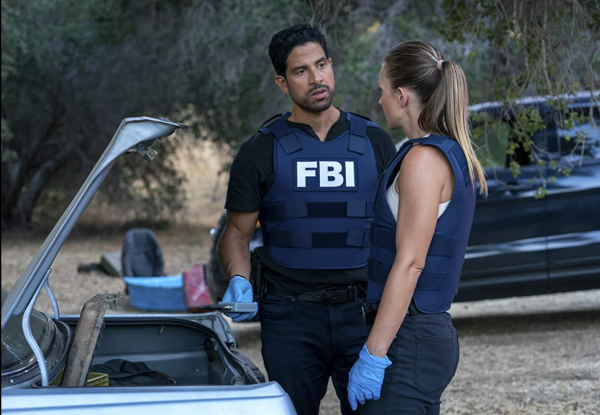
Criminal Minds season 16 still, Luke (Adam Rodriguez) and Jennifer (AJ Cooke)
Despite the sinister heart and the ubiquitous horror scenes, "Criminal Minds" is always a warm dinner drama. It forms a looping structure, the mysteries of dealing with grief and the ways of psychological profiling circulated from agent to agent. Emily goes to Rosie, who is out of shape, and asks him to share his grief with everyone so that everyone can share it, saying that this is the teaching of Gideon (Mandy Patinkin), who left early. "That's what I told him," Rossi replied. The values in the closed loop have been passed on from word to mouth and followed from generation to generation, so that these BAU agents finally agree to regard the department as a family and friendship as a belief.
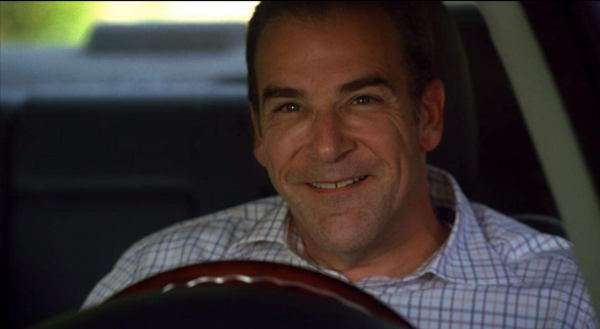
Criminal Minds season 1 still, Gideon (Mandy Patinkin)
They are old school people. Unlike the broken family and lonely detective images that flooded the screen later, BAU detectives stick to their families under the super-intensive work pressure, and their love will never die. There is a deep gulf between them and the now generally misanthropic generation. These are people who believe in the ancient creed and know without thinking that life is not about protecting your own integrity, but the opposite. For fifteen years, they dedicated, burned, and consumed themselves. Everyone has been shot and injured, everyone has a bad past, and they have all lost important people.
The show fully acknowledges the impermanence of life. Impermanence is the starting point of every story, and they are well aware of the fragility of the individual and the eternity of evil. Although there are helicopters to take them everywhere, the serial killers in the country will never be caught. The job is as endless as Sisyphus pushing a stone, and every member knows it.
With Quantico as the center, the agents flew all over the United States. No matter which city you are in, it is always summer. This surreal vision, like the indestructibility of BAU's internal beliefs, became a rock of reassurance.
Although it is always summer, we still live in a dangerous world. The crime theme that American dramas love, has been unremittingly conveying this message to the audience. Reconstruction of criminal logic through psychological profiling, BAU, which aims to save survivors and prevent crimes, deals with super dangerous serial killers on a daily basis. The psychological profiling method they use hopes to take a shortcut and go straight to the psychological root of the crime. This unique method is destined to have mixed reviews.
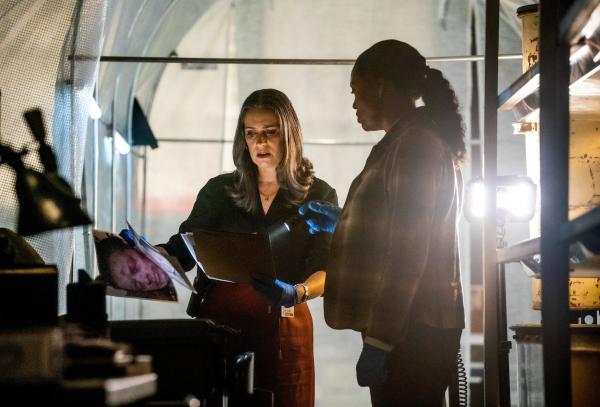
Criminal Minds season 16 still, Emily (Pudge Brewster)
I am used to watching traditional reasoning, and I often feel uncomfortable when watching dramas in the early days. The length of a forty-five-minute episode is too rushed, leaving little time for the agents to observe. When they suddenly uttered the profile in one breath like a godsend, this group of people looked suspicious like magic sticks who claimed to be psychics. Gradually, it no longer feels awkward. On the one hand, because self-confidence and intuition seem to be contagious, after watching too many dramas, it seems that I have also learned this kind of profiling method mixed with psychological knowledge, intuition and flashes of inspiration. On the one hand, it is also related to the growth attribute of this drama.
Profilers need a wealth of life experience and the ability to empathize. He/she must have a whole personality in order to understand the weirdness of human psychology. It is not enough to have a wealth of knowledge and good training, and Reed's (Matthew Gray Gubler) growth process can best illustrate this point. He grew from a genius nerd-like stereotype to a real profiler, and experienced countless bloodshed and setbacks. From youth to middle age, he is still a person with good intentions. When the audience has experienced with the profilers and believed in their empathy, they will no longer be surprised by their profiling reports.

Reed in Early Criminal Minds
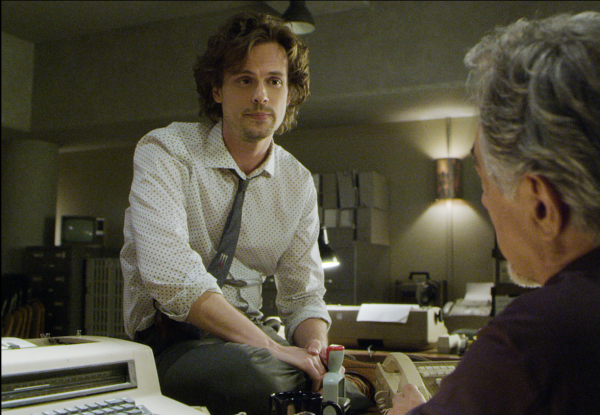
Late Reed (Matthew Gray Gubler)
Criminal psychology profiling is a branch of modern psychology, and it is difficult to write a ready-made textbook for teaching. Even if there is, the quality of the teacher cannot be guaranteed after familiarization. Because of the uniqueness of this discipline, this season's Emily (played by Paget Brewster) can confidently tell the other party after being made things difficult by her boss: "Compared with us who are experienced, maybe you are The one who went."
Before the birth of this drama, most American crime dramas followed the order of solving the case, the detective followed the clues to chase the murderer, and ended with the murderer being caught. "Criminal Minds" takes a different approach to start with criminals and victims, by observing the traces and phenomena (including expressions, postures, handwriting, tone, appearance, behavior patterns, etc.) A portrait to find that person.
Starting with "Criminal Minds", American crime dramas have gradually shifted from an outward-looking type to an introverted type that pays more attention to psychological analysis. The display of abnormal personality in the early classic films "Vertigo" (Vertigo, 1958) and "The Silence of the Lambs" (The Silence of the Lambs, 1991) is now carried forward by TV dramas. The super volume of "Criminal Minds" and the adaptation of many real cases make it difficult to surpass the large number of psychological profiling crime dramas that have appeared in various countries in recent years. Viewers who have watched the fifteenth season have already read all kinds of psychological abnormalities that lead to crimes, and they have a very good understanding of the psychology of human nature that is not pathological but eventually leads to killing. New dramas that want to surpass it can only start from the depth. The forty-five-minute length of each episode of "Criminal Minds" is a natural obstacle to its deep psychological exploration.
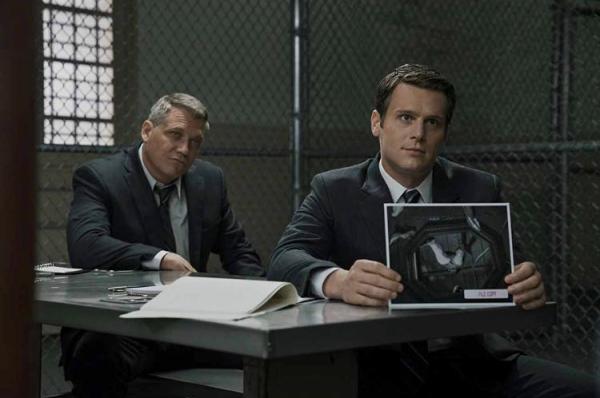
"Mind Hunter" stills
The later standout "Mind Hunter" (Mind Hunter) broke through the capacity limit of weekly dramas, one episode and one case, locked criminals and profilers in a confined space, and pushed psychological exploration to the extreme through a large number of dialogues. But including this year's high-scoring new drama "Black Bird," they all have a more conservative and parochial side than "Criminal Minds." Unlike the criminals with different spirits in "Criminal Minds", the criminals in these new dramas have a series of things in common: an ordinary appearance, relatively silent, scheming but childish innocence, anti-social personality, no empathy, It's scary to laugh... Although these serial killers have different appearances, they give people the illusion that they are all the same person (or devil) under the skin.
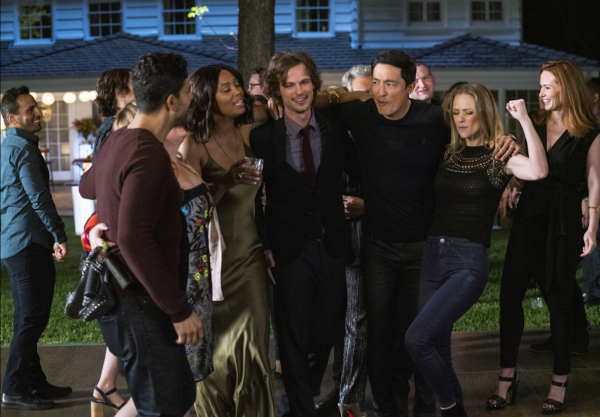
Criminal Minds Season 15 Finale Stills
People in their right mind are confused by crime, especially killing for the sake of killing, not for money. In order to find out who would commit these crimes, people in the past have put forward many theories, and it was even popular to infer whether a person has homicide tendencies from the shape of the skull. As the saying goes, "shooting ghost faces" is also a manifestation of this kind of random experience summarization. Criminal Minds challenges this ubiquitous simplification, presenting the chaos and disorder of the human psyche with great patience. It has a fine tradition that continues to this day, that is, each episode begins and ends with a sentence from a literary work that summarizes the psychological characteristics of the episode. Screenwriters can always find incisive sentences, and incorporate the human nature that is usually difficult to touch in crime dramas into the vast ocean of literature.
In this way, it has a broad mind, can break through the distinction between good and evil, and have a more open attitude towards justice and evil. The detectives are more like the great detective Sherlock Holmes, like him, a person who digs the truth, and never stands on the commanding heights to play the role of law enforcement. They often sympathize with criminals, always understand them deeply; know them because they understand, and they can be found. Although BAU cannot occasionally let the other side go like Sherlock Holmes, individuals are willing to shoulder heavier shackles-forgive some people and die for others.
Paying attention to people's hearts will naturally open up many sad gray areas.
In many cases, the murderer is also a victim, a person who has been let down by his family, society or a certain system. They were cornered, psychologically traumatized, and killed while insane. Victim isn't always synonymous with weak, either. The little girl who was kidnapped by the bad guys for ten years on the pretext of "feeding the puppy" cried after being rescued: "I never saw that puppy again." Tragic encounters cannot erase the love in human nature .
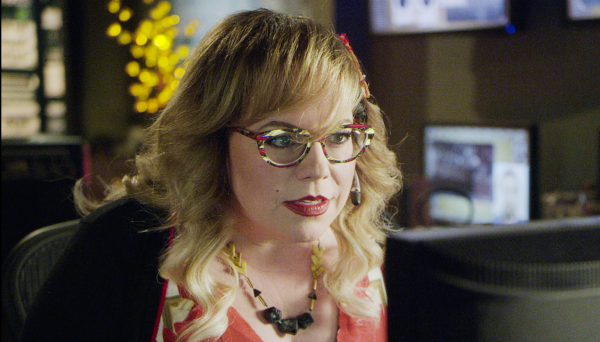
Criminal Minds Season 15 Still, Penelope Garcia (Kirsten Vanesse)
A sincere display of ambivalence and respect for choices that can't be both, is the secret of "Criminal Minds"'s enduring. At the end of the fifteenth season, Penelope Garcia (Kirsten Van Ness) left the BAU to start a normal life. Before Garcia returned to the team this season, the screenwriter once again asked her to confirm that her wishes remained unchanged: "I miss you very much, but I don't miss this job." Too many deaths and the feeling of being powerless to fear for his companions dragged down Garcia , the audience understood her decision and admired her brave decision. When needed by the team again, we are very happy to see her passionately choose colorful frame glasses, return to the vacant office, and feel like a fish in water in the hacker world unfolded on multiple screens.
It is said that the rapid resurrection of this show is related to the fact that it kicked out the self-produced drama "Bridgerton" (Bridgerton) within a week after its first 12 seasons on Netflix in 2021 and became the champion of viewing hours. Since people are so willing to rewatch old dramas and get comfort in this warm closed loop, why not revive it as soon as the actors are not too old?
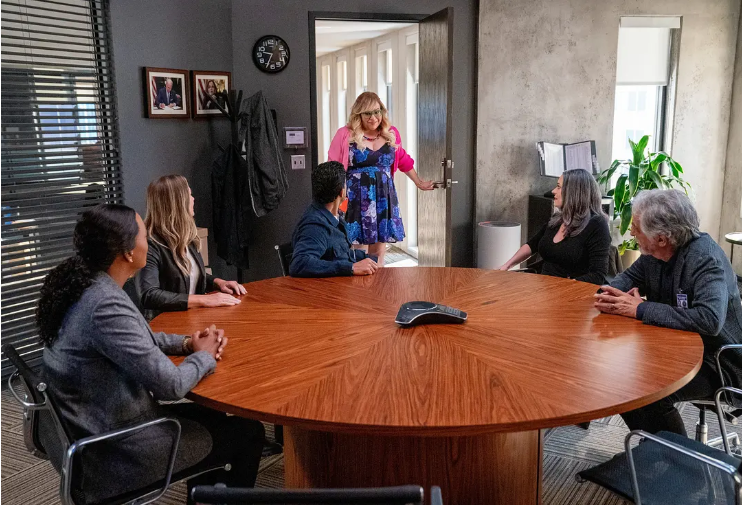
"Criminal Minds" season sixteen stills
At the beginning of the sixteenth season after the resurrection, BAU encountered real difficulties, and the department was ravaged by the boss to the point of being on the verge of dissolution. Personnel cannot escape the reality of the post-epidemic era, because budget constraints can only be divided into operations. Structurally, the resurrection season still has one case per episode, but it is closed with a bus, creating a "big boss who takes care of all the cases". Soon, the scattered agents will reunite and, as before, use hive thinking to resist the fragility of individuals and the impermanence of life.
I don't look forward to wonderful cases anymore, I just want to watch them draw circles one after another while eating - while acknowledging that Death is invincible, while stopping him, snatching from him the fate that is destined to spend a restless life life.

